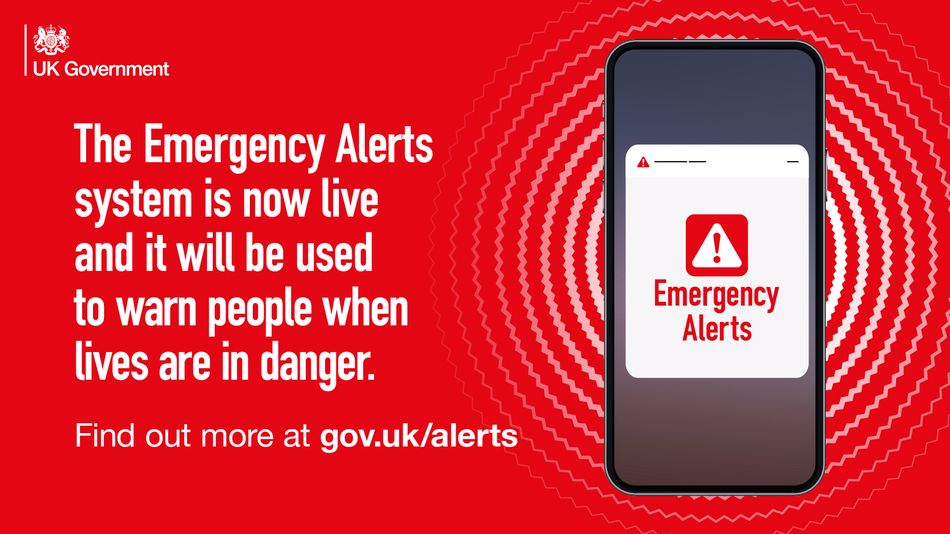Following the success of testing in both Reading and East Suffolk in 2021, the UK Government's Emergency Alert system is now live. On Sunday 23 April 2023 at 3pm, there will be a national test of the UK Emergency Alerts service. Here's everything you need to know about the Emergency Alerts, and what to expect in the nationwide test.
How do the Emergency Alerts Work?
Emergency Alerts are messages sent out by the Government to all compatible 4G and 5G phones when there's a danger to your life, health or property in the area you're located, such as a public health emergency.
Only the Government and the emergency services can send them, and while it's easy to be confused as to how the Government has your phone number, they don't actually need your phone number or to track your location as part of the system.
What Will the Emergency Alerts Be Used For?
The new Emergency Alerts service might sound scary, but its aim is to help people to know when they're in danger. The alerts will enable people to be contacted via their mobile phone if their lives are at risk in an emergency.
This could include public health emergencies, severe floods, fires and industrial incidents. By using the Emergency Alerts system, you'll be able to know of emergencies and see the relevant information much quicker than previously, allowing you to take the appropriate action and keep yourself and your family safe.

How do I Know if an Alert is Real and Not a Scam?
An Emergency Alert looks and sounds very different to other types of messages such as SMS 'text messages', making them easy to identify. When you receive an Emergency Alert, you'll hear a loud siren-like sound and your phone will use a distinct vibration. You will receive this emergency alert even if your phone is on silent or 'do not disturb'.
At the same time, a message on your screen will tell you about the emergency and what you need to do. Depending on your phon's features, the alert will work with screen magnification if this is enabled, and may read the message out loud for you. If you or one of your loved ones use a hearing aid, the unique noise emitted by the phone should also be audible.
What if I Don't Have a Mobile Phone or It's Broken?
Emergency Alerts are being introduced to make it easier to know about emergencies right away. Still, they will be just one of the ways the Government communicates about emergency situations. So if you don't have a mobile phone, don't worry - you'll still be made aware through the media and local emergency services.
What Should I Do When I Receive an Emergency Alert?
A message will appear on your screen until you acknowledge it, and the alert will give you clear instructions of what to do to stay safe. At Your Baby Club, we know that expecting parents and those with young children can be particularly sensitive to the thought of emergencies and things going wrong.
Because of this, it's important to be aware of what to expect if you receive an emergency alert, and to closely follow any of the guidance given in the alert while trying not to panic. As an alert comes through, it will include a phone number or a link to the GOV.UK website for more information.
What Should I Expect From the Trial on 23rd April?
When the test of the alerts is sent out on the 23rd April at 3pm, it will be clear that this alert is a test. The alert will say:
"This is a test of Emergency Alerts, a new UK Government service that will warn you if there's a life-threatening emergency nearby."
"In an actual emergency, follow the instructions in the alert to keep yourself and others safe."
"This is a test. You do not need to take any action."
You can opt out of emergency alerts, but the Government advises you should keep them switched on for your own safety. For any more information on the alerts, the test, and what to expect, look out for the nationwide information campaign and visit gov.uk/alerts.



